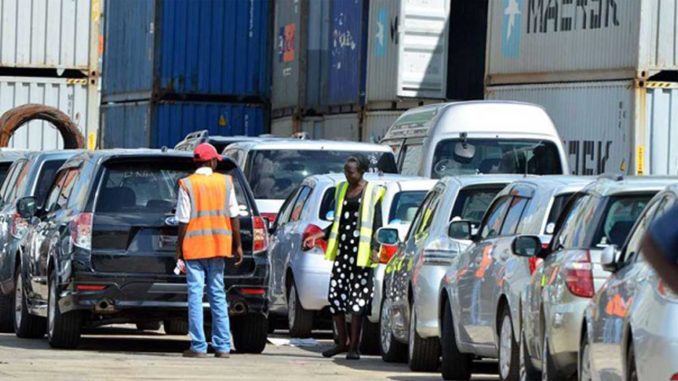
The controversy surrounding the recent imposition of 15 per cent National Automobile Commission (NAC) levy on imported used vehicles by the Nigeria Customs Service (NCS) is not unexpected, given the struggling economic condition of Nigerians, and the complications that are bound to attend the levy. Stakeholders such as the African Association of Professional Freight Forwarders and Logistics and the Association of Nigerian Licensed Customs Agents, among others have bluntly rejected the new tax while a few others are largely indifferent in this regard. The NCS, on its own part has indicated that the reported increases are as a result of the migration of the Service from the old version of the ECOWAS Common External Tariff (CET) to the new one commencing in 2022, in line with the World Customs Organisation. This has raised some issues in relations to the conduct of import trade in the country. The hue and cry by these clearing agents on this new tax on imported cars suggests that some form of uncontrolled brigandage is on display by the NCS in the management of the flow of goods into and out of the economy through the ports. The situation needs to be properly reviewed given that while the Customs Services in many other African countries are reducing taxes, the NCS is introducing new ones with the backing of the Federal Ministry of Finance. All these have significant impact on the price of used cars and other related goods in the Nigerian economy. The quest for more revenue by government should not lead to some unnecessary crisis at the ports.
Prior to this, the NAC levy is usually applied to the importation of new vehicles only. Hence introducing this to used cars would definitely affect the common man more adversely. This situation never existed in the past. Most Nigerians cannot afford the purchase of new vehicles and they usually switch to imported used vehicles. Cognisance should be taken of the effect of these increases on the general prices level across all sectors of the economy.
Presently, life has become more and more unbearable for the average Nigerian. The narrative from the NCS does not appear too convincing. According to the NCS, the action taken is in line with the World Customs Organisation five-year review to be based on regional and national economic policy considerations.
By this and in line with the Finance Act and the National Automotive policy, a duty of 20 per cent was retained for both new and used cars in line with the common external tariff in the ECOWAS countries. The NAC levy which was applicable to new cars only previously, was however set at 20 per cent for new cars and 15 per cent for used cars. That is the main bone of contention.
It is worthy of note, however, that prior to this time, the duty on cars was 35 per cent. So, in a bid not to lose revenue due to the reduction in duty charged, the NCS appears to be keen on recovering the “loss” by introducing the 15 per cent for used cars which never existed. The African Association of Professional Freight Forwarders and Logistics and the Association of Nigerian Licensed Customs Agents, among others, have largely dubbed the increase as illegal. They claimed that instead of 15 per cent, the rate that was recommended by the National Automotive Council is two per cent and that the issue will be challenged in further engagements with the supervising Ministry of Finance. According to them, the two per cent is meant to cover insurance and freight only hence the recommendation for the addition. Thus the 15 per cent increase was considered illegal under the NAC law. In addition, these stakeholders identified contradictions between the 15 per cent increase and the provisions under both the 2001 and 2020 Finance Acts which did not specify any such on imported used cars.
The core issues that need to be addressed here are numerous. First, the impact of this NAC levy on the Nigerian economy and the efficient functioning of the Nigerian Ports is worthy of consideration. Research has shown that there are too many bottlenecks in the clearing of goods at Nigerian ports such that many importers resort to bringing in their goods into Nigeria through the ports of neighbouring countries. This has consequently increased the tempo of smuggling in the country. In view of this, what government should be focused on is on how to make the passage of goods through the Nigerian Ports easy.
Hence increasing the taxes or levies at the ports in the urge for more revenue tends to complicate the problem. Importation through Nigerian ports has become a sort of nightmare and it is a great disincentive to the flow of international trade through the ports. Second, the issue of corruption at the ports are greatly encouraged when the multiplicity of regulatory bodies must provide clearance before goods can be allowed in, each of them with some sort of levies to be paid at one point or the other. The question arises as to whether all the levies being collected are adequately accounted for. Are they deploying the required technologies to minimise the incidence of corruption? These are questions begging for answer. Finally, the issue of the illegality raised by the various stakeholders would also need to be addressed. The adjudication by the National Assembly in this regard may be necessary in the resolution of this crisis at the ports.
END

Be the first to comment